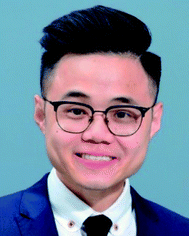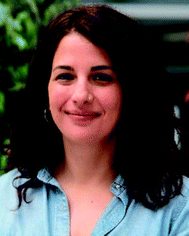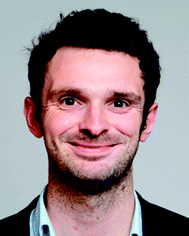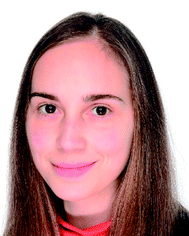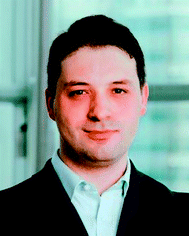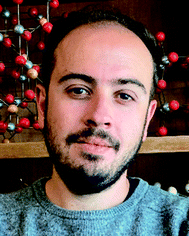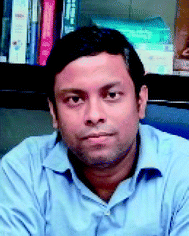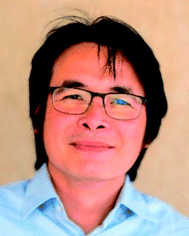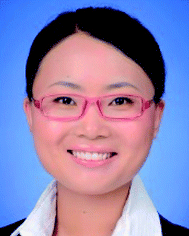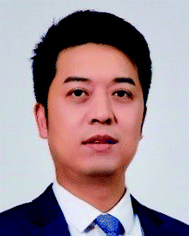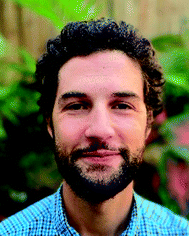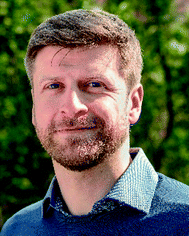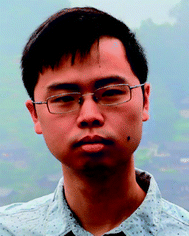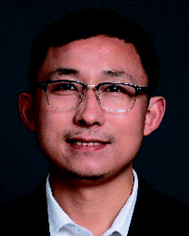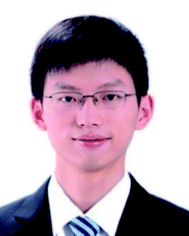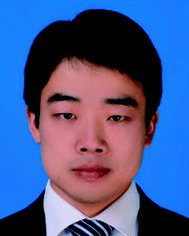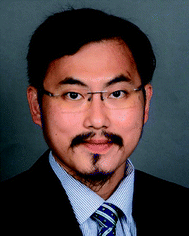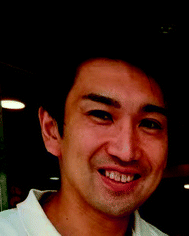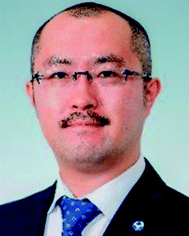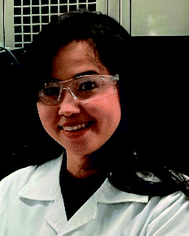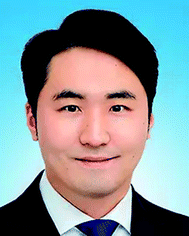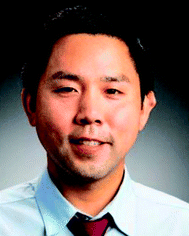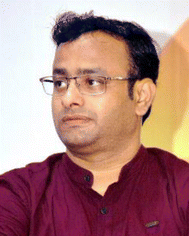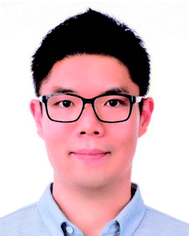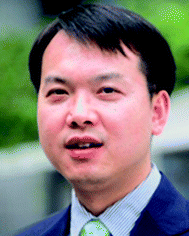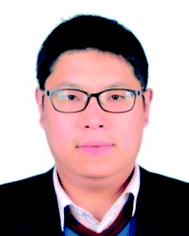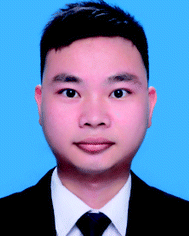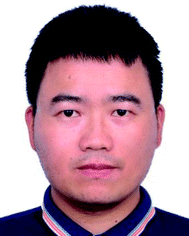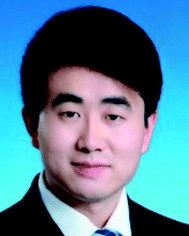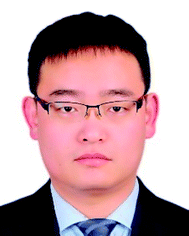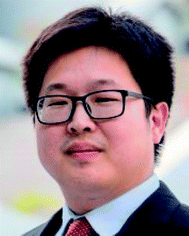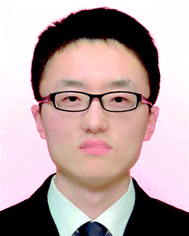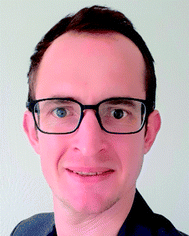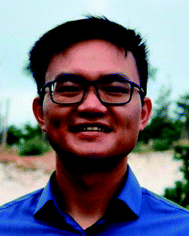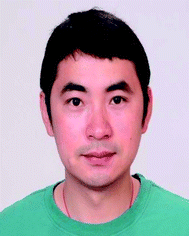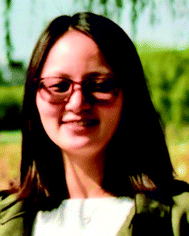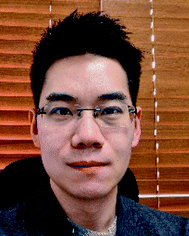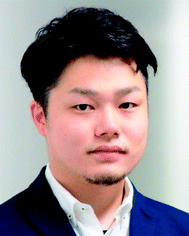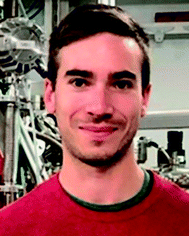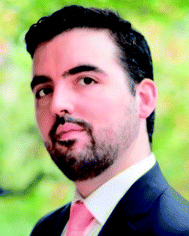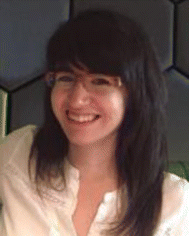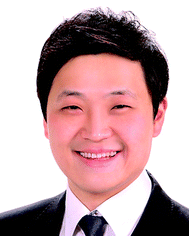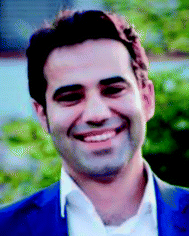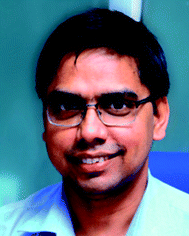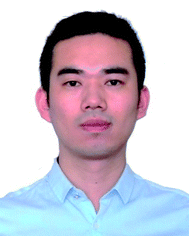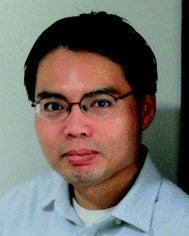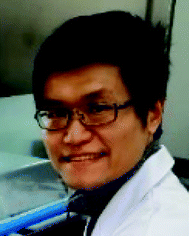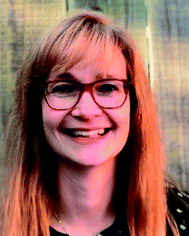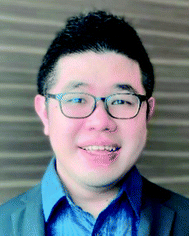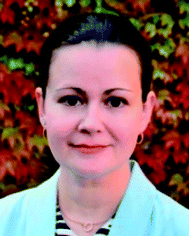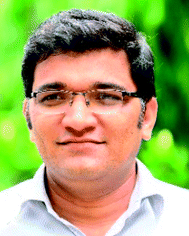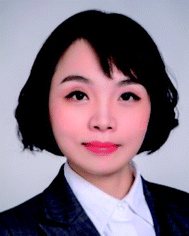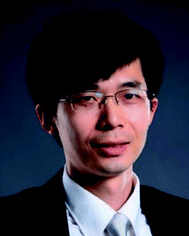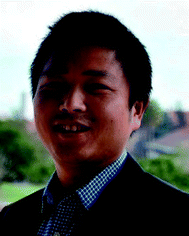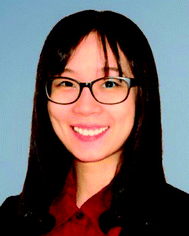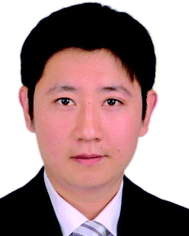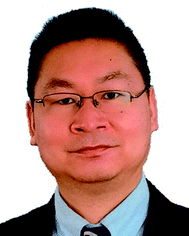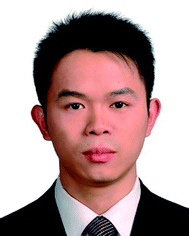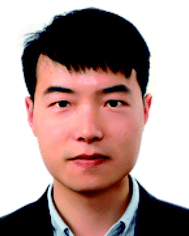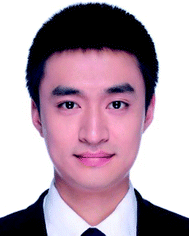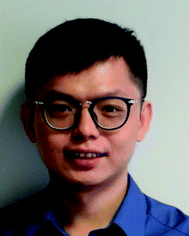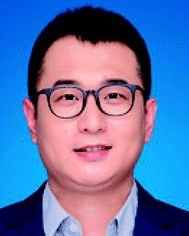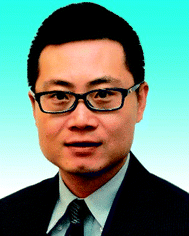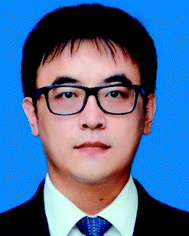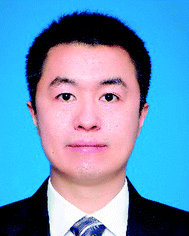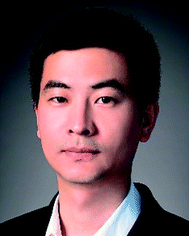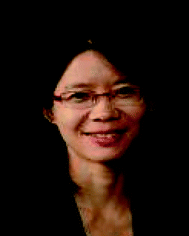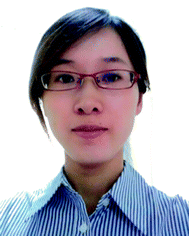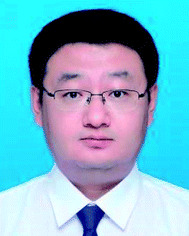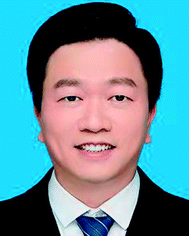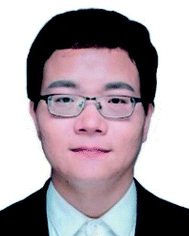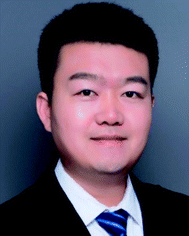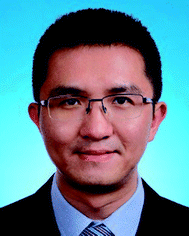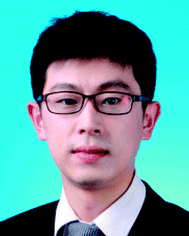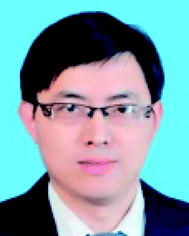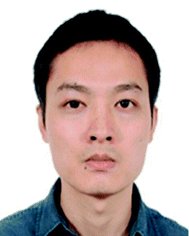Contributors to the Journal of Materials Chemistry A Emerging Investigators 2022 issue
Abstract
Our 2022 Emerging Investigators themed issues gather some of the best research being conducted by scientists in the early stages of their independent career. Each contributor was recommended as carrying out work with the potential to influence future directions in materials chemistry. Congratulations to all of the researchers featured, we hope you enjoy reading this issue.
Edison Huixiang Ang
Dr Edison Huixiang Ang obtained his PhD from Nanyang Technological University (NTU, Singapore). He worked as a Postdoctoral Fellow at both the National University of Singapore and NTU, and as a Visiting Scholar at the Technical University of Munich, Germany. He is currently an Assistant Professor at NTU, and his research interests combine nanotechnology and materials science approaches to develop functional nanostructures for energy storage and conversion, as well as water treatment applications. He was honoured with the prestigious IAAM Young Scientist Medal Award (2022), Vebleo Fellow Award (2021) and Outstanding ASIAN Science Diplomat Award (2021).
His contribution to the 2022 Journal of Materials Chemistry A Emerging Investigators issue can be read at https://doi.org/10.1039/D2TA02092K.
Dr Mariam Barawi is a Senior Assistant Researcher at Imdea Energy in charge of the (photo)electrochemical cell line in the Photoactivated Process Unit. She obtained her PhD in 2015 at Universidad Autónoma de Madrid, investigating solar energy conversion through photoelectrochemical cells. Thereafter she started her postdoctoral period at Istituto Italiano di Tecnologia investigating inorganic nanocrystals for smart windows. In January 2017, she joined Imdea Energy and during this period she has been awarded two Spanish government grants (Juan de la Cierva-Formación in 2017 and Juan de la Cierva-Incorporación in 2020). Mariam is a co-author of 38 scientific publications and has participated in more than 15 research projects, being the Principal Investigator in two of them.
Her contribution to the 2022 Journal of Materials Chemistry A Emerging Investigators issue can be read at https://doi.org/10.1039/D2TA03239B.
Dr Thomas Bennett was awarded his PhD in 2012 at the University of Cambridge. He has received several fellowships and awards, including a Royal Society Research Fellowship (2016), the Woldemar A. Weyl Award for glass science (2019), the Philip Leverhulme Prize in Chemistry (2019), the Royal Society of Chemistry Harrison Meldola Memorial Prize (2020) and the Chemical Communications Lectureship (2021). He has held visiting positions at the University of Kyoto, the Wuhan University of Technology, and the University of Canterbury New Zealand|Te Whare Wānanga o Waitaha. He is currently an Assistant Professor at the University of Cambridge, where his research group are best known for the discovery of hybrid melt-quenched MOF glasses.
His contribution to the 2022 Journal of Materials Chemistry A Emerging Investigators issue can be read at https://doi.org/10.1039/D2TA02560D.
Dr Elena Bykova received her PhD from Bayerisches Geoinstitut, University of Bayreuth, Germany. She worked as a postdoctoral researcher at the Extreme Conditions Beamline at the PETRA III synchrotron (Germany) and at the Earth & Planet Laboratory, Carnegie Institution for Science (USA). Her research interests are mainly focused on developing methodologies for single-crystal X-ray diffraction experiments at high pressures and temperatures, in order to study materials related to mineral physics and materials sciences. In 2018 in recognition of her outstanding achievements in the field of ultra-high-pressure crystallography, she received the Max von Laue Prize from the German Crystallographic Society.
Her contribution to the 2022 Journal of Materials Chemistry A Emerging Investigators issue can be read at https://doi.org/10.1039/D2TA02268K.
Dr Pieremanuele Canepa is an Assistant Professor in the Department of Materials Science and Engineering at the National University of Singapore. He was a Postdoctoral Fellow at the Lawrence Berkeley National Laboratory and the Massachusetts Institute of Technology under the guidance of Prof. Gerbrand Ceder. He received his bachelor’s and master's degrees in chemistry from the University of Torino (Italy) and his PhD from the University of Kent (UK). His research contributes to the rational design of new materials for clean energy technologies, such as electrode materials for batteries, ionic conductors and liquid electrolytes for sustainable energy storage devices.
His contribution to the 2022 Journal of Materials Chemistry A Emerging Investigators issue can be read at https://doi.org/10.1039/D2TA02202H.
Dr Francisco J. Carmona obtained his PhD in Chemistry in 2017 at the University of Granada (Spain). Later, he worked as a postdoctoral researcher at Insubria University (Italy, 2017–2019) and Kyoto University (Japan, 2019–2020). In 2020, he received a Marie Sklodowska-Curie postdoctoral fellowship to join the Department of Inorganic Chemistry at the University of Granada (Spain). His current research is focused on the green preparation of metal–organic frameworks (MOFs) and polyhedra (MOPs) with potential applications in biomedicine and environmental remediation.
His contribution to the 2022 Journal of Materials Chemistry A Emerging Investigators issue can be read at https://doi.org/10.1039/D2TA02074B.
Dr Nerea Casado earned her B.S. in Chemistry (2012) and PhD in Applied Chemistry and Polymeric Materials (2017) at the University of the Basque Country, Spain. During her PhD, she worked on redox polymers and conducting polymers for energy storage, in close collaboration with CIC EnergiGUNE research center. She joined the group of Prof. Maria Forsyth at Deakin University (Australia) as a visiting post-doctoral researcher for 7 months to study the electroactivity of polymers in ionic liquids and batteries. Since 2020, she has worked as a research associate at POLYMAT and in close collaboration with Deakin University. Her current research interests include mixed ionic–electronic conductors, functional polymers and ionic liquids for applications related to energy storage and bioelectronics.
Her contribution to the 2022 Journal of Materials Chemistry A Emerging Investigators issue can be read at https://doi.org/10.1039/D1TA09628A.
Dr Subrata Chattopadhyay is currently working as an assistant professor at the Department of Chemistry, Indian Institute of Technology Patna. He completed his BSc (Chemistry) at Raghunathpur College, affiliated to The University of Burdwan, India, MSc (Chemistry) at the Indian Institute of Technology Madras, India and PhD at RWTH Aachen University, Germany under the supervision of Dr Helmut Keul and Prof. Martin Moeller. Thereafter he worked as a postdoctoral researcher at Ghent University, Belgium with Prof. Filip Du Prez (2014–2016). His research interest lies in the sustainable synthesis of stimuli responsive and biodegradable functional polymers and materials for different applications, such as controlled delivery, antimicrobials, sensing and environmental remediation.
His contribution to the 2022 Journal of Materials Chemistry A Emerging Investigators issue can be read at https://doi.org/10.1039/D2TA02708A.
Dr Cao Thang Dinh is an Assistant Professor of Chemical Engineering at Queen's University. He received his master's and PhD degrees in Chemical Engineering from Laval University in 2010 and 2014, respectively. From 2014 to 2019, Dr Dinh was a postdoctoral fellow in the Department of Electrical and Computer Engineering at the University of Toronto. His research focuses on developing electrochemical processes for renewable fuel and chemical production from carbon dioxide, water and renewable electricity.
His contribution to the 2022 Journal of Materials Chemistry A Emerging Investigators issue can be read at https://doi.org/10.1039/D2TA02709G.
Dr Yuanyuan Dong received her PhD degree from Tianjin University under the supervision of Prof. Xinbin Ma. After finishing her postdoctoral training with Prof. Shijun Liao at South China University of Technology and Prof. Qi Chen at the Beijing Institute of Technology (BIT), she joined the School of Chemistry and Chemical Engineering at BIT as an Assistant Professor. Her current research is focused on the materials design of polyoxometalate–semiconductor composites, electro-/photocatalysis for renewable energy conversion, and value-added transformation of organic chemicals.
Her contribution to the 2022 Journal of Materials Chemistry A Emerging Investigators issue can be read at https://doi.org/10.1039/D2TA02148J.
Dr Xuezhi Duan received his PhD degree in Chemical Engineering from the East China University of Science and Technology (ECUST) in 2012. After a two-year (2013–2015) stint as a post-doctoral fellow at the Norwegian University of Science and Technology, he joined the faculty of the School of Chemical Engineering at ECUST. He is a full Professor and Deputy Director of the State Key Laboratory of Chemical Engineering. His current research interests include kinetics-assisted catalyst design, theoretical calculations, and reactor engineering. In addition, he received the Young Scientist Prize awarded by the International Association of Catalysis Societies, the Outstanding Youth Award of the Global Chinese Chemical Engineers Symposium, the Henry Fok Youth Teacher Award, the Chinese Chemical Society Young Chemist Award, etc.
His contribution to the 2022 Journal of Materials Chemistry A Emerging Investigators issue can be read at https://doi.org/10.1039/D2TA02216H.
Dr Timothy T. Duignan is a Lecturer in Applied Mathematics and Physics at Griffith University and an Adjunct Research Fellow in the School of Chemical Engineering at the University of Queensland. He holds a Discovery Early Career Researcher Award. He works on modelling electrolyte solutions with the goal of improving electrochemical energy storage and CO2 capture and conversion as well as doing tricks with his border collie Ziggy. He completed his PhD in the Applied Mathematics Department at the Australian National University in Canberra before carrying out postdoctoral research at Pacific Northwest National Laboratory in Washington State, USA.
His contribution to the 2022 Journal of Materials Chemistry A Emerging Investigators issue can be read at https://doi.org/10.1039/D2TA02610D.
Dr Tim Fellinger studied the interdisciplinary nanostructure and molecular sciences and was privileged with the direct PhD supervision of Markus Antonietti (2009–2011). His materials chemistry background was shaped in the creative environment of the MPI of Colloids and Interphases, where he also started his independent career. His scientific vision is to tailor nanostructured carbon-based materials to be able to transfer biochemical principles targeting electrochemical energy applications, earning him the Ernst-Haage Prize for Chemistry in 2018. He was further educated and influenced by Hubert Gasteiger, who hosted his group from 2017 to 2020 at TUM. In 2020 he established his research group at BAM.
His contribution to the 2022 Journal of Materials Chemistry A Emerging Investigators issue can be read at https://doi.org/10.1039/D2TA00925K.
Dr Jingfu He is currently an Associate Professor at the School of Materials, Sun Yat-sen University. He received his PhD in 2012 from the University of Science and Technology of China. His current research interests focus on the development of advanced functional materials for the storage of renewable energy, including electrochemical CO2 reduction, water splitting and organic synthesis. He is also committed to developing advanced in situ/operando synchrotron radiation experimental techniques and their applications in energy storage and reaction mechanisms.
His contribution to the 2022 Journal of Materials Chemistry A Emerging Investigators issue can be read at https://doi.org/10.1039/D2TA02989H.
Dr Yongmin He is a Professor at the College of Chemistry and Chemical Engineering at Hunan University (China). Dr He obtained his PhD degree at Lanzhou University in 2015 (China), and later worked in Prof. Zheng Liu and Prof. Qi Jie Wang's groups as a postdoc research fellow (2015–2021) at Nanyang Technological University (Singapore). His research interest focuses on the synthesis and structure-engineering of atom-thin materials, and their electronic or on-chip electrochemical devices, with various applications in nanoelectronics, iontronics, sensors, and electrocatalysis.
His contribution to the 2022 Journal of Materials Chemistry A Emerging Investigators issue can be read at https://doi.org/10.1039/D2TA02458F.
Dr Shaocong Hou obtained his PhD degree from Peking University in 2014, and then worked for the University of Cambridge (2014–2016), Harvard University (2016–2017) and the University of Michigan (2018–2020). He joined the School of Electrical and Automation, Wuhan University in 2021. His research interests span from fundamentally understanding charge, photon and exciton behaviors to developing next-generation intelligent materials, devices and systems.
His contribution to the 2022 Journal of Materials Chemistry A Emerging Investigators issue can be read at https://doi.org/10.1039/D2TA02207A.
Dr Han Hu received his PhD degree from the School of Chemical Engineering at Dalian University of Technology in 2014. After carrying out postdoctoral research at Nanyang Technological University (2014–2016), the Leibniz Institute for Solid State and Materials Research Dresden (2016–2017), and the University of Queensland (2017–2018), he joined the State Key Lab of Heavy Oil Processing at the China University of Petroleum (East China) as a full Professor in 2018. He focuses his research on the production and surface engineering of functional materials for energy storage and conversion.
His contribution to the 2022 Journal of Materials Chemistry A Emerging Investigators issue can be read at https://doi.org/10.1039/D2TA02256G.
Dr Bolong Huang received his PhD in 2012 from the University of Cambridge, and his BSc in condensed matter physics from the Department of Physics, Peking University in 2007. This was followed by a systematic postdoctoral training period in the Chemistry Department at Peking University and in Hong Kong. In 2015, he started up his independent research at the Hong Kong Polytechnic University and he became a tenured Associate Professor in 2022. His main research interests focus on the electronic structures of nanomaterials, energy materials, solid functional materials, and rare earth materials, as well as their applications in multi-scale energy conversion and supply systems.
His contribution to the 2022 Journal of Materials Chemistry A Emerging Investigators issue can be read at https://doi.org/10.1039/D2TA02013K.
Dr Seiichiro Izawa has been an Assistant Professor at the Institute for Molecular Science, Japan, since 2016. He received his PhD from the University of Tokyo in 2015 and worked at RIKEN in Japan and the University of California, Santa Barbara as a postdoctoral fellow from the Japan Society for the Promotion of Science. His research interests are controlling optoelectronic properties at organic semiconductor interfaces for application in organic photovoltaics, light-emitting diodes, and photon upconversion.
His contribution to the 2022 Journal of Materials Chemistry A Emerging Investigators issue can be read at https://doi.org/10.1039/D2TA02068H.
Dr Seihou Jinnai is an Assistant Professor in the Department of Soft Nanomaterials (Ie group) at the Institute of Scientific and Industrial Research (SANKEN), Osaka University, Japan. He received his PhD degree from Osaka University in 2017 under the supervision of Professor Yoshio Aso. After he engaged in research on functional organic dyes as a corporate researcher at Orient Chemical Industries Co., Ltd. from 2016 to 2019, he joined the laboratory of Professor Yutaka Ie. His research focus is the development of new π-conjugated compounds and systems for organic electronics and photo-functional applications.
His contribution to the 2022 Journal of Materials Chemistry A Emerging Investigators issue can be read at https://doi.org/10.1039/D2TA02604J.
Dr Watchareeya Kaveevivitchai is an Assistant Professor in Chemical Engineering at the National Cheng Kung University, Taiwan. She earned a PhD in Chemistry from the University of Houston (2014) and pursued postdoctoral research in the Texas Materials Institute at the University of Texas at Austin (2015–2017). Her research group focuses on a variety of investigative studies in the general areas of solid-state chemistry, Li-ion batteries, post-Li-ion batteries, energy storage technologies, functional redox-active materials, and advanced porous compounds for gas storage and separations, carbon capture, and biomedical applications.
Her contribution to the 2022 Journal of Materials Chemistry A Emerging Investigators issue can be read at https://doi.org/10.1039/D2TA01463G.
Dr Piran Kidambi is an Assistant Professor at the Vanderbilt University Department of Chemical and Biomolecular Engineering. After receiving his PhD from the University of Cambridge, he pursued postdoctoral research at MIT through a Lindemann Trust Fellowship. Kidambi's research leverages the intersection between (i) nanomaterials synthesis, (ii) process engineering, and (iii) in situ metrology, to enable bottom-up novel materials design and synthesis for energy, separations, electronics, catalysis, and healthcare applications. His research has been recognized via several awards including the NSF CAREER (2020), ACS PMSE Young Investigator (2022), ECS Toyota Young Investigator (2020), and the Ralph E. Powe Junior Faculty Enhancement Award (2018), among others.
His contribution to the 2022 Journal of Materials Chemistry A Emerging Investigators issue can be read at https://doi.org/10.1039/D2TA01737G.
Dr Jongsoon Kim is an Assistant Professor in the Department of Energy Science at Sungkyunkwan University. He received his BSc and MSc at the Korea Advanced Institute of Science and Technology (KAIST). Then, he completed his PhD (2014) at Seoul National University. His research laboratory focuses on the development of new materials for Li-ion and Na-ion batteries using ab initio calculations and X-ray/neutron-based analyses.
His contribution to the 2022 Journal of Materials Chemistry A Emerging Investigators issue can be read at https://doi.org/10.1039/D2TA02167F.
Dr Jesse S. Ko is a senior staff scientist in the Research and Exploratory Development Department at the Johns Hopkins University Applied Physics Laboratory. He received his PhD in Materials Science and Engineering at the University of California, Los Angeles in 2016. He conducted his postdoctoral research studies at the U.S. Naval Research Laboratory (2016–2018) and SLAC National Accelerator Laboratory (2018–2019). His current research involves the discovery of novel electrode materials and electrolytes for robust electrochemical energy storage under extreme environments. Another key area of his research involves investigating nanoporous materials for electrocatalytic reactions.
His contribution to the 2022 Journal of Materials Chemistry A Emerging Investigators issue can be read at https://doi.org/10.1039/D2TA03240F.
Dr Praveen is working as an Assistant Professor at the Indian Association for the Cultivation of Sciences (IACS), Kolkata. He is an Editorial Board Member of Materials Letters (Elsevier) and Nanotechnology (IOP) Journals. He is a recipient of several recognized awards and fellowships, including Fullbright Nehru Professional Excellence Fellowship, MRSI Medal, MCAA Societal Impact Award, DAE Young Achiever Award, Marie Curie Postdoctoral Fellowship, etc. His research contribution covers materials engineering of III-V/Si semiconductors, 2D-Materials/MXenes, Carbon Nanostructures for water-splitting, CO2 RR, Photodetectors & Supercapacitors. He has authored 89 publications, 04 patents (filed), 09 books/chapters, and delivered ∼65 invited talks around the globe.
His contribution to the 2022 Journal of Materials Chemistry A Emerging Investigators issue can be read at https://doi.org/10.1039/D2TA03441G.
Dr Hortense Le Ferrand is a Nanyang Assistant Professor in the School of Mechanical and Aerospace Engineering and School of Materials Science and Engineering at the Nanyang Technological University in Singapore, where she leads the Laboratory for Dense Multifunctional Composites (LDMC). She received her PhD degree in Materials Science from the Swiss Federal Institute of Technology (ETH Zürich) in Switzerland in 2017. Dr Le Ferrand is the recipient of the prestigious National Research Foundation Fellowship (2020) from Singapore. Her research focuses on novel additive manufacturing technologies for dense composites, microstructural designs and fabrication of bio-inspired composite and ceramic materials for combined structural and functional properties.
Her contribution to the 2022 Journal of Materials Chemistry A Emerging Investigators issue can be read at https://doi.org/10.1039/D2TA01926D.
Dr Jechan Lee received his PhD in chemical engineering from the University of Wisconsin–Madison in 2015 and M.S. in environmental engineering at Columbia University in 2010. After his PhD, he worked as a postdoctoral researcher at the Catalysis Center for Energy Innovation at the University of Delaware (2015–2016) and Sejong University (2016–2018). He was an Assistant Professor in the Department of Environmental and Safety Engineering (2018–2021) and an Associate Professor in the Department of Environmental and Safety Engineering/Department of Energy Systems Research (2021–2022) at Ajou University. He has recently joined the faculty at Sungkyunkwan University (SKKU). His research interests are in the areas of waste upcycling, waste-to-energy, biorefineries, and CO2 utilization. He has currently authored more than 210 peer-reviewed SCI(E) papers.
His contribution to the 2022 Journal of Materials Chemistry A Emerging Investigators issue can be read at https://doi.org/10.1039/D2TA02060B.
Dr Dangyuan Lei is an Associate Professor in the Department of Materials Science and Engineering at the City University of Hong Kong. He received his BSc, MPhil and PhD degrees all in Physics from Northwest University, The Chinese University of Hong Kong, and Imperial College London in 2005, 2007 and 2011, respectively. His research interests center on nanophotonics and low-dimensional quantum materials, with particular interest in cavity-enhanced light–matter interactions at the nanoscale and applications in miniaturized photonic and optoelectronic devices, sensing, imaging, energy harvesting, conversion and saving. He has co-authored 182 publications and received 7900 citations, has an h-index of 52 (Google Scholar as of May 2022), and has given 4 keynote speeches and >80 invited talks.
His contribution to the 2022 Journal of Materials Chemistry A Emerging Investigators issue can be read at https://doi.org/10.1039/D2TA02259A.
Dr Yongpeng Lei received his B.S. degree (2003) and master's degree (2006) from the National University of Defense Technology, and his PhD degree (2011) from the National University of Defense Technology working with Prof. Yingde Wang. He started the study of functional nanomaterials in the Department of Chemistry, Tsinghua University in 2011, under the guidance of Acad. Yadong Li. He joined the faculty of the State Key Laboratory of Powder Metallurgy, Central South University in 2017 as a full Professor.
His contribution to the 2022 Journal of Materials Chemistry A Emerging Investigators issue can be read at https://doi.org/10.1039/D2TA02381D.
Dr Guangfu Liao received his PhD degree in Materials Physics & Chemistry from Sun Yat-sen University in 2020. Then he joined the laboratory of Prof. Yi-Chun Lu at the Chinese University of Hong Kong working as a Research Associate. Now, he is a Researcher at the China University of Geosciences. His research interests involve polymer synthesis & applications, polymer membranes, redox flow batteries, nanoporous & nanostructured materials, photo- & electrocatalysis, biomaterials, gas storage & energy conversion, etc. So far, he has published more than 50 high profile SCI papers in journals including Matter, Progress in Materials Science, Energy & Environmental Science, Trends in Chemistry, Chemical Science, ACS Catalysis, Nano Energy, Small, Journal of Materials Chemistry A, Macromolecules, etc.
His contribution to the 2022 Journal of Materials Chemistry A Emerging Investigators issue can be read at https://doi.org/10.1039/D2TA03166C.
Dr Chunfu Lin received his B.E. and M.E. degrees in Materials Science and Engineering from Tsinghua University in 2005 and 2007, respectively. He received his PhD degree from the National University of Singapore in 2014. He is currently a full Professor at Qingdao University. He has published >80 papers in peer-reviewed journals, including Advanced Energy Materials, Advanced Functional Materials, Advanced Science, ACS Nano, and Energy Storage Materials. He is taking charge of two research programs funded by the National Natural Science Foundation of China. His scientific research includes energy storage and conversion materials, especially concentrating on niobium-based anode materials for high-performance lithium-ion batteries.
His contribution to the 2022 Journal of Materials Chemistry A Emerging Investigators issue can be read at https://doi.org/10.1039/D2TA02169B.
Dr Bin Liu received his PhD from the Technical Institute of Physics and Chemistry (TIPC), Chinese Academy of Sciences (CAS), under the supervision of Professor Li-Zhu Wu and Professor Chen-Ho Tung in 2015. From 2015 to 2019, he worked at the Center of Super Diamond and Advanced Films (COSDAF), and the Department of Materials Science and Engineering, City University of Hong Kong (CityU HK), successively as a Senior Research Assistant, Senior Research Associate and Research Fellow. Then he joined the State Key Laboratory of Chemical Resource Engineering at the Beijing University of Chemical Technology (BUCT) as an Associate Professor. His research interests include energy electrocatalysis, artificial photosynthesis, and solar photochemical conversion.
His contribution to the 2022 Journal of Materials Chemistry A Emerging Investigators issue can be read at https://doi.org/10.1039/D2TA01104B.
Dr Jinghai Liu received his PhD in Physical Chemistry from the Suzhou Institute of Nano-Tech and Nano-Bionics (SINANO), Chinese Academy of Sciences in 2012. Currently he is a Professor at the Nano Innovation Institute (NII) and the College of Chemistry and Materials Science at the Inner Mongolia Minzu University (IMUN). His research interests include the precise synthesis of functional carbon/inorganic solid materials and devices at the nano/atomic scale for photocatalysis, electrochemical energy storage and bioelectronics with an emphasis on interdisciplinary solid-state chemistry and nanoscience, and very impactful “Fundamental to Applied” research. He won the second prize of the Inner Mongolia Natural Science Award (2020).
His contribution to the 2022 Journal of Materials Chemistry A Emerging Investigators issue can be read at https://doi.org/10.1039/D2TA02066A.
Dr Qi Liu is currently an Assistant Professor in the Department of Physics, City University of Hong Kong. He obtained his PhD from Purdue University in 2014. Before joining CityU, he worked as a postdoctoral fellow at Argonne National Laboratory. His current research interests focus on the structure–property studies of functional materials via multiple neutron- and synchrotron-based techniques. His broader research activities include the design and synthesis of novel energy storage materials, phase transition mechanisms and neutron-/synchrotron physics.
His contribution to the 2022 Journal of Materials Chemistry A Emerging Investigators issue can be read at https://doi.org/10.1039/D2TA02228A.
Dr Zihang Liu is a full Professor in the Department of Materials Science and Engineering at the Harbin Institute of Technology (HIT), China. He obtained his PhD degree in March 2017 at HIT, then did his postdoctoral study at the University of Houston and the National Institute for Materials Science, Japan until August 2021. He received the 2021 National Natural Science Fund for Excellent Young Scientists (Overseas). His research interests include thermoelectric materials and devices, thermal management, as well as DFT calculations. As the first author and corresponding author, he has published over 30 papers in peer-reviewed journals, including Joule, Nature Communications, PNAS, Energy & Environmental Science, and Advanced Energy Materials.
His contribution to the 2022 Journal of Materials Chemistry A Emerging Investigators issue can be read at https://doi.org/10.1039/D2TA02147A.
Dr Gabriel Loget is a CNRS researcher working in the fields of electrochemistry and materials science. He received his PhD in Physical Chemistry from the University of Bordeaux. In 2012, he received the silver medal of the European Young Chemist Award. After that, he did a postdoctoral fellowship at the University of California, Irvine. In 2014, he was awarded an Alexander-von-Humboldt postdoctoral fellowship to conduct his research at Friedrich-Alexander Universität, Erlangen-Nürnberg. In 2015, he joined the CNRS. His current fields of interest are photoelectrochemical energy conversion and light conversion.
His contribution to the 2022 Journal of Materials Chemistry A Emerging Investigators issue can be read at https://doi.org/10.1039/D2TA01212J.
Dr Mingchuan Luo is a Marie Skłodowska-Curie Fellow at Leiden University. His research focuses on understanding and engineering mysterious electrified interfaces for renewable and sustainable innovations. Dr Luo gained his PhD in chemistry from Beijing University of Chemical Technology in 2016. Since then, Dr Luo has conducted postdoc research at Peking University for advancing electrocatalytic nanomaterials, at the University of Toronto for upgrading carbon dioxide electrolysis systems, and now at Leiden University for studying fundamental electrochemistry at electrified interfaces.
His contribution to the 2022 Journal of Materials Chemistry A Emerging Investigators issue can be read at https://doi.org/10.1039/D2TA02193E.
Dr Jianfeng Mao received his PhD in materials engineering from the University of Wollongong, Australia. He has worked at the Max-Planck-Institut für Kohlenforschung, the University of Glasgow, the University of Maryland, the University of Wollongong, and the University of Adelaide. His current research interests are in developing advanced electrode and electrolyte materials for batteries, as well as battery recycling.
His contribution to the 2022 Journal of Materials Chemistry A Emerging Investigators issue can be read at https://doi.org/10.1039/D2TA02223K.
Dr Yue-E Miao received her B.S. degree from Southeast University in 2010 and PhD degree from Fudan University in 2015. In 2013, she was a joint-training graduate student in the School of Physical & Mathematical Sciences at Nanyang Technological University, Singapore. She is now an Associate Professor at the College of Materials Science and Engineering, Donghua University. She serves as a Young Editorial Board Member for the journal Exploration. Her research interests mainly focus on the design and synthesis of polymer nanofiber composites, including polymer nanofiber electrolytes/separators, organic nanofiber electrodes, and carbon nanofiber composites, for applications in electrochemical energy storage (such as Li/Na-ion batteries and Li–S batteries).
Her contribution to the 2022 Journal of Materials Chemistry A Emerging Investigators issue can be read at https://doi.org/10.1039/D2TA02229J.
Dr Gun-hee Moon received a B.S. degree in Chemical Engineering from Inha University (2008), an M.S. degree in Environmental Engineering from POSTECH (2011), and a PhD degree in Chemical Engineering from POSTECH (2015). During the PhD course, he joined the Pacific Northwest National Laboratory as a visiting student. After his postdoctoral career at POSTECH and Max-Planck-Institut für Kohlenforschung, he moved to the Korea Institute of Science and Technology (KIST), where he is currently employed as a senior scientist working on the design of photocatalysts, electrocatalysts, photoelectrochemical cells, and carbon materials for energy conversion and environmental applications.
His contribution to the 2022 Journal of Materials Chemistry A Emerging Investigators issue can be read at https://doi.org/10.1039/D2TA02257E.
Dr Akinobu Nakada is a Senior Lecturer at Kyoto University. He received his PhD from the Tokyo Institute of Technology in 2017. During 2017–2018, he joined Kyoto University as a Postdoctoral Fellow and a specially-appointed Assistant Professor. After serving as an Assistant Professor at Chuo University from 2019 to 2021, he was promoted to his present position at Kyoto University. From 2020, he has concurrently served as a PRESTO researcher of the Japan Science and Technology Agency. His research interests include molecular engineering into photocatalyst materials/systems for light-to-chemical conversion.
His contribution to the 2022 Journal of Materials Chemistry A Emerging Investigators issue can be read at https://doi.org/10.1039/D2TA02183H.
Dr Andrew J. Naylor is a researcher at the Department of Chemistry – Ångström and the Ångström Advanced Battery Centre at Uppsala University. In 2022, Andy was appointed as a Docent (‘Associate Professor’) with specialisation in materials chemistry. Following PhD studies in Chemistry at the University of Southampton, he held postdoctoral positions at the University of St Andrews and University of Oxford. Andy now leads a group whose research focus is to study battery interfaces, principally for next-generation technologies. Particular emphasis is put on the use and development of surface analysis characterisation techniques, especially for the investigation of new materials and electrolytes.
His contribution to the 2022 Journal of Materials Chemistry A Emerging Investigators issue can be read at https://doi.org/10.1039/D2TA03242B.
Dr Wanyi Nie received her PhD from the Dept. of Physics, Wake Forest University. She then joined Los Alamos National Laboratory (LANL) as a postdoctoral researcher. In 2016, she was converted to a staff scientist at LANL, and she is now leading a team working on perovskite materials and opto-electronic devices. At work, she is passionate about experiments. After work, she likes outdoor activities in the beautiful mountains of Los Alamos, and she likes to spend time with her lovely cat at home.
Her contribution to the 2022 Journal of Materials Chemistry A Emerging Investigators issue can be read at https://doi.org/10.1039/D2TA02154D.
Dr Jose J. Plata is an Assistant Professor in the School of Chemistry at the University of Seville. Previously, Jose held a postdoctoral position at Duke University (2013–2017) and a Marie Skłodowska-Curie individual fellowship (2018–2020). He earned his PhD in Theoretical and Computational Chemistry from the University of Seville in 2013. His research focuses on the development of high-throughput frameworks for the prediction of materials properties, utilizing state-of-the-art computational techniques.
His contribution to the 2022 Journal of Materials Chemistry A Emerging Investigators issue can be read at https://doi.org/10.1039/D2TA02180C.
Dr Noelia Rubio Carrero is a Lecturer in Organic Chemistry at the University of Alcalá (Madrid). She completed her PhD in the Flatland in 2012 at the University of Castilla-La Mancha, where she focused on the one-dimensional world of carbon nanotube functionalisation. She later travelled to the two-dimensional world in 2015 where she explored several ways for graphene exfoliation and functionalisation during her postdoctoral stays at King’s College London and Imperial College London. Noelia current research interests still focus on the two-dimensional world where she is designing new devices based on single-layer graphene for organ-on-a-chip technologies.
Her contribution to the 2022 Journal of Materials Chemistry A Emerging Investigators issue can be read at https://doi.org/10.1039/D2TA03487E.
Dr Won-Hee Ryu received his B.S. (2006) from the Department of Metallurgical Engineering at Yonsei University, Korea and M.S. (2007) & PhD (2012) from the Department of Materials Science and Engineering at the Korea Advanced Institute of Science and Technology (KAIST), Korea. Dr Ryu did postdoctoral work at KAIST (2012–2013) and Yale University (2013–2016). He joined the faculty of the Department of Chemical and Biological Engineering at Sookmyung Women's University (Seoul, Korea) as an assistant professor (2016) and currently works as an associate professor (from 2021). His research focuses on the development of materials and systems for electrochemical energy storage and conversion.
His contribution to the 2022 Journal of Materials Chemistry A Emerging Investigators issue can be read at https://doi.org/10.1039/D2TA02234F.
Dr Michael Saliba is the director of the Institute for Photovoltaics (IPV) at the University of Stuttgart with a dual appointment as the Helmholtz Young Investigator at the Forschungszentrum Jülich, Germany. He is renowned for his pioneering discoveries in the fundamental physical and chemical understanding of phase-stable, long-term durable perovskite semiconductors for sustainable solar cells, light-emitting devices and detectors. Previously, he held positions at TU Darmstadt, Fribourg University, and EPFL. He obtained his PhD at Oxford University. Among others, he received the Heinz-Maier-Leibnitz Award of the German Research Foundation (DFG) and was named as one of the worldwide 35 innovators under 35 by the MIT Technology Review. Recently, he was awarded a Starting Grant by the European Research Council (ERC).
His contribution to the 2022 Journal of Materials Chemistry A Emerging Investigators issue can be read at https://doi.org/10.1039/D2TA01135B.
Dr Pralay K. Santra joined the Centre for Nano and Soft Matter Sciences in November 2016. He did his undergraduate at St. Xavier's College, Kolkata, in 2003 with a major in Chemistry, followed by the Integrated PhD program at the Indian Institute of Science, Bangalore. He did his postdoctoral research at the University of Notre Dame and Stanford University. He was also at Uppsala University as Carl Trygger's postdoctoral fellow. His research interests focus on the fundamental understanding of various aspects of nanomaterials, growing sub-nanometer thick interfaces by atomic layer deposition, and their applications. He loves to travel and hike.
His contribution to the 2022 Journal of Materials Chemistry A Emerging Investigators issue can be read at https://doi.org/10.1039/D2TA02714C.
Dr Enzheng Shi is currently an Assistant Professor at the School of Engineering, Westlake University. Dr Shi received his bachelor's degree from Shandong University in 2010 and PhD degree from Peking University in 2015. He worked as a postdoc research associate at Iowa State University from 2015 to 2017, and at Purdue University from 2017 to 2020. His research interests cover two aspects: (1) design, synthesis, and applications of novel electronic materials and heterostructures; (2) assembly and manipulation of low-dimensional carbon nanomaterials.
His contribution to the 2022 Journal of Materials Chemistry A Emerging Investigators issue can be read at https://doi.org/10.1039/D2TA02219B.
Dr Siowling Soh received his PhD degree from Northwestern University where he studied under Bartosz Grzybowski. He then worked with George Whitesides at Harvard University as a postdoctoral fellow. His current research in the Department of Chemical and Biomolecular Engineering at the National University of Singapore is highly interdisciplinary. It involves the physical–chemical investigation of the fundamental mechanisms of charge separation at all the interfaces of matter, including solid, liquid, and gas. He studies the materials science of controlling charge separation and develops novel applications. His research interests also include smart materials and the creation of intelligence in materials.
His contribution to the 2022 Journal of Materials Chemistry A Emerging Investigators issue can be read at https://doi.org/10.1039/D2TA03232E.
Dr Kuan Sun came from 30°19′12′′N/105°84′01′′E, graduated from the reverse of his surname (NUS), and trained at each letter of his given name (KIT, UniMelb And NUS). He is leading a team, namely the “Laboratory of Flexible Renewable Energy Materials & Devices” (La FREMDs) at Chongqing University, trying to touch the limit of energy upconversion efficiency of flexible photovoltaic cells and soft thermoelectric generators.
His contribution to the 2022 Journal of Materials Chemistry A Emerging Investigators issue can be read at https://doi.org/10.1039/D1TA10508F.
Dr Carolin M. Sutter-Fella is a Staff Scientist at the Molecular Foundry Division at the Lawrence Berkeley National Laboratory (LBNL). Her research focuses on synthesis of functional materials and understanding synthesis–property relationships using multimodal in situ techniques. She is also interested in the development of novel in situ capabilities. Carolin is a Glenn Seaborg Early Career Fellow. She received her PhD in Electrical Engineering from ETH Zürich, Switzerland, in 2014 where she worked on the synthesis of chalcogenide thin film solar cells. Before Carolin joined LBNL, she was a Swiss NSF postdoctoral fellow at UC Berkeley and investigated the growth of III–V thin films.
Her contribution to the 2022 Journal of Materials Chemistry A Emerging Investigators issue can be read at https://doi.org/10.1039/D2TA00763K.
Dr Ady Suwardi is currently a group leader at IMRE, A*STAR and an Adj. Asst. Prof. at NUS (National University of Singapore). Prior to this, he obtained his PhD in 2018 from the Department of Materials Science and Metallurgy, University of Cambridge, UK. His research expertise lies in materials for energy and sustainability, with specific focus on thermoelectric materials. The main thrusts of his team's research encompass electronic waste recycling for thermoelectrics, flexible and recyclable thermoelectrics, and additively-manufactured thermoelectrics. For his work in electronic waste recycling, he was recently awarded a top ten prize in the EU-ASEAN Youth Sustainable Project Competition 2022.
His contribution to the 2022 Journal of Materials Chemistry A Emerging Investigators issue can be read at https://doi.org/10.1039/D2TA00386D.
Dr Yana Vaynzof is the Chair for Emerging Electronic Technologies at the Integrated Centre for Applied Physics and Photonic Materials and the Centre for Advancing Electronics Dresden at the Technical University of Dresden (Germany). She received a BSc in Electrical Engineering from the Technion – Israel Institute of Technology (Israel) in 2006 and an MSc in Electrical Engineering from Princeton University (USA) in 2008. In 2011, she received a PhD in Physics from the University of Cambridge (UK). Her research interests lie in the field of emerging photovoltaics focusing on the study of materials and device physics of organic, quantum dot and perovskite solar cells by integrating device fabrication and characterisation with the application and development of advanced spectroscopic methods.
Her contribution to the 2022 Journal of Materials Chemistry A Emerging Investigators issue can be read at https://doi.org/10.1039/D1TA10566C.
Dr Pratap Vishnoi is a Ramanujan faculty fellow at the Jawaharlal Nehru Centre for Advanced Scientific Research (JNCASR), Bangalore. He received his PhD in chemistry from the Indian Institute of Technology Bombay (IIT Bombay) under the supervision of Prof. R. Murugavel. He then worked as a post-doctoral fellow at the JNCASR with Prof. C. N. R. Rao and subsequently at the University of California Santa Barbara (UCSB) with Prof. Ram Seshadri and Prof. Sir Anthony K. Cheetham. His current research interests are in multifunctional hybrid organic–inorganic materials, halide perovskites and layered nanomaterials.
His contribution to the 2022 Journal of Materials Chemistry A Emerging Investigators issue can be read at https://doi.org/10.1039/D2TA01932A.
Dr Li Wan is an Associate Professor of new energy materials and devices at the School of Materials Science and Engineering, Hubei University, China. She obtained her PhD in Material Science at Hubei University in 2011, working on low-cost carbon counter electrodes for dye sensitized solar cells. She worked as a Visiting Scholar at TU Wien, Austria from 2016 to 2017 and Shaanxi Normal University, China from 2018 to 2019. Her main research interests include high efficiency and low-cost photovoltaic devices like organic solar cells and perovskite solar cells, nano-carbon materials (carbon nanotubes and graphene) and their composites for optoelectronic applications. Deep understanding of electrified interfaces is crucial to energy devices. Therefore, she has started to focus on the research of in situ electrochemical characterization of electrified interfaces.
Her contribution to the 2022 Journal of Materials Chemistry A Emerging Investigators issue can be read at https://doi.org/10.1039/D2TA02263J.
Dr Jianhui Wang received his B.S. degree from Zhejiang University in 2006. He split his PhD training between Zhejiang University, National University of Singapore and the Dalian Institute of Chemical Physics, and obtained his PhD degree in 2011. Then, after one year's post-doc at Kyushu University, he joined the University of Tokyo in 2013 and served successively as a Project Researcher, JSPS Fellow and Chief Researcher. Since September 2018, he has been the Principal Investigator of the Energy Storage & Conversion Laboratory at Westlake University, aiming at developing next-generation batteries and fuel cells.
His contribution to the 2022 Journal of Materials Chemistry A Emerging Investigators issue can be read at https://doi.org/10.1039/D2TA02267B.
Dr Lei Wang completed his doctorate at KTH Royal Institute of Technology in 2015, where he studied water oxidation based on molecular catalysts. After receiving his PhD, he conducted a short period of research on catalyst discovery for light-induced hydrogen evolution at Uppsala University. In 2016, he joined Stanford University as a Wallenberg-Stanford postdoc fellow and worked on electrochemical CO reduction. He began his current position at the National University of Singapore at the end of 2020, where he is part of the NUS Green Energy Programme. His current research focuses on catalyst discovery and understanding reaction mechanisms for electrochemical CO2 reduction.
His contribution to the 2022 Journal of Materials Chemistry A Emerging Investigators issue can be read at https://doi.org/10.1039/D2TA01962K.
Dr Wei Wei is an Assistant Professor in the Mechanical Engineering Department at Wichita State University. She received her PhD from Michigan Technological University and her B.S. degree from the East China University of Science and Technology. Her current research focuses on advanced materials synthesis, renewable energy conversion devices, photocatalytic processes for H2 generation, and mechanical properties of composite materials.
Her contribution to the 2022 Journal of Materials Chemistry A Emerging Investigators issue can be read at https://doi.org/10.1039/D2TA02175G.
Dr Pinxian Xi received his PhD degree in 2010 from Lanzhou University. From 2009 to 2010 he worked as a visiting scholar at Brown University. In 2018, he was appointed as a Professor by the College of Chemistry and Chemical Engineering of Lanzhou University. His research focuses on controlled synthesis of functional materials (including transition metal sulfide and rare earth functional materials) and developing their applications in the electrocatalysis and energy fields.
His contribution to the 2022 Journal of Materials Chemistry A Emerging Investigators issue can be read at https://doi.org/10.1039/D2TA00191H.
Dr Junwu Xiao is currently an Associate Professor in the Department of Chemistry and Chemical Engineering at the Huazhong University of Science & Technology (HUST). He received his PhD degree in 2012 from the Hong Kong University of Science & Technology (HKUST) under the supervision of Prof. Shihe Yang. From 2018 to 2020, he worked in the Department of Chemical & Biomolecular Engineering at the University of Delaware as a visiting scholar under the supervision of Prof. Yushan Yan. His research focuses on anion exchange membrane water electrolyzers/hydrogen fuel cells.
His contribution to the 2022 Journal of Materials Chemistry A Emerging Investigators issue can be read at https://doi.org/10.1039/D2TA02157A.
Dr Wei Xiong received his PhD degree in Physical Chemistry at Tongji University, China, in 2012. At present, he works as an Associate Professor in the School of Chemistry and Environmental Engineering at the Wuhan Institute of Technology. His main research interests include nanomaterials for energy and environmental applications, such as hydrogen storage, supercapacitors, electrocatalytic nitrogen reduction, electrochemical sensors, theoretical calculation, etc. He has published over 20 original research papers in materials, chemistry, and energy related journals.
His contribution to the 2022 Journal of Materials Chemistry A Emerging Investigators issue can be read at https://doi.org/10.1039/D2TA02111K.
Dr Zheng-Long Xu is an Assistant Professor in the Department of Industrial and Systems Engineering at the Hong Kong Polytechnic University. He received his BSc in Materials Science and Engineering from Zhejiang University and PhD in Mechanical Engineering from the Hong Kong University of Science and Technology. His research group at PolyU focuses on developing new materials and devices for post-Li battery chemistries (i.e., Li–S, Na-ion, and Ca-ion batteries) and operando characterization technologies (i.e., in situ TEM).
His contribution to the 2022 Journal of Materials Chemistry A Emerging Investigators issue can be read at https://doi.org/10.1039/D2TA02217F.
Dr Xi Yao received his PhD from Jilin University in 2014, majoring in physical chemistry. During 2015–2018, he worked with Prof. Zhigang Suo as a postdoctoral research fellow at Harvard University. He is currently working as a full Professor in the School of Materials, Key Laboratory for Special Functional Materials at Henan University, Henan, China. His research focuses on desalination and heat management materials based on superwettability: bio-inspired hydrogel coatings with superwettability and special mechanical features.
His contribution to the 2022 Journal of Materials Chemistry A Emerging Investigators issue can be read at https://doi.org/10.1039/D2TA03255D.
Dr Ruquan Ye is an Assistant Professor in Chemistry at the City University of Hong Kong. He received his B.S. (Chemistry) in 2012 from the Hong Kong University of Science and Technology under Prof. Ben Zhong Tang's supervision, and his PhD (Chemistry) in 2017 from Rice University mentored by Prof. James M. Tour. He worked with Prof. Karthish Manthiram as a postdoctoral associate in Chemical Engineering at the Massachusetts Institute of Technology (2017–2018). His research interests include developing cost-effective methods for materials manufacturing and investigating their applications in energy and environmental science.
His contribution to the 2022 Journal of Materials Chemistry A Emerging Investigators issue can be read at https://doi.org/10.1039/D2TA02086F.
Dr Huajie Yin currently holds a Professor position at the Institute of Solid State Physics, Chinese Academy of Sciences. He obtained his PhD in 2015 from the National Centre for Nanoscience and Technology, and Tsinghua University, China. He subsequently took a Research Fellow position at the Centre for Clean Environment and Energy, Griffith University. His research is focused on controllable synthesis of 2D materials and their related applications in electrocatalysis, photocatalysis, and energy storage and conversion.
His contribution to the 2022 Journal of Materials Chemistry A Emerging Investigators issue can be read at https://doi.org/10.1039/D2TA02245A.
Dr Xinge Yu is currently an Associate Professor of Biomedical Engineering at the City University of Hong Kong (CityU). Xinge Yu's research group focuses on skin-integrated electronics for biomedical applications. He has published over 120 papers in Nature, Nature Materials, Nature Biomedical Engineering, Nature Communications, PNAS, Science Advances, etc. Dr Yu serves as an associate editor/editorial board member for 10 journals. Dr Yu is also the recipient of the Innovators under 35 China (MIT Technology Review), NSFC Excellent Young Scientist Fund (Hong Kong & Macao), New Innovator of IEEE NanoMed, and MINE Young Scientist awards.
His contribution to the 2022 Journal of Materials Chemistry A Emerging Investigators issue can be read at https://doi.org/10.1039/D2TA01154A.
Dr Ye Yuan obtained his bachelor's degree in Applied Chemistry from Jilin University in 2010. Then, he joined the research group of Professor Guangshan Zhu for his further master's and PhD studies, mainly working on targeted preparation of porous aromatic frameworks and their functionalization. After receiving his PhD degree in 2015, he began his academic career as an Associate Professor in the Department of Chemistry, Northeast Normal University, and was promoted to a Professor in 2020. His scientific research interests are focused on the development of molecularly imprinted porous organic frameworks for energy, biological, and environmental-related applications, including uranium extraction, gas sorption, and catalysis.
His contribution to the 2022 Journal of Materials Chemistry A Emerging Investigators issue can be read at https://doi.org/10.1039/D1TA10657K.
Dr Teng Zhai is currently a Professor at the School of Materials Science and Engineering, Nanjing University of Science and Technology (NJUST, China). Prior to joining NJUST in 2015, he received his PhD degree at Sun Yat-sen University (China). He was a visiting scholar at the University of California, Santa Cruz (UCSC, USA) from 2013 to 2015. His research interests focus on the surface/interface modification of nanomaterials for energy storage systems, such as supercapacitors, aqueous batteries, and metal-iodine batteries.
His contribution to the 2022 Journal of Materials Chemistry A Emerging Investigators issue can be read at https://doi.org/10.1039/D2TA02242G.
Dr Liang Zhang is a Professor in the Institute of Functional Nano & Soft Materials (FONSOM) of Soochow University. He received his PhD degree in the application of synchrotron radiation from University of Science and Technology of China under the direction of Prof. Junfa Zhu in 2013. He then received an Alexander-von-Humboldt fellowship and stayed at the University of Erlangen-Nuremberg under the supervision of Prof. Hans-Peter Steinrueck. From 2016 to 2018, he worked at the Advanced Light Source of Lawrence Berkeley National Laboratory as a postdoc fellow under the supervision of Dr Jinghua Guo. His research mainly focuses on the development of in situ/operando synchrotron radiation-based spectroscopy methods and their applications in energy storage materials.
His contribution to the 2022 Journal of Materials Chemistry A Emerging Investigators issue can be read at https://doi.org/10.1039/D2TA01936A.
Dr Sui Zhang is an Assistant Professor in the Department of Chemical and Biomolecular Engineering, National University of Singapore (NUS). She received her Bachelor’s degree from Fudan University in June 2008, and her PhD degree from NUS in December 2012. Then she did postdoctoral research at NUS and Massachusetts Institute of Technology before joining NUS in October 2017. She started her journey in the membrane field during her PhD studies and has built increasing interest in it since then. She is particularly interested in membranes made from emerging materials with well controlled transport pathways such as 2D materials and microporous polymers.
Her contribution to the 2022 Journal of Materials Chemistry A Emerging Investigators issue can be read at https://doi.org/10.1039/D2TA02178A.
Dr Weina Zhang is currently a Professor at the Institute of Advanced Materials, Nanjing Tech University. She received her B.S. and M.S. degrees from Xi'an University of Technology and Xi'an Jiaotong University in China in 2007 and 2011, respectively. She subsequently completed her PhD at Nanyang Technological University in Singapore in 2014. Then she joined the Institute of Advanced Materials, Nanjing Tech University as a researcher in 2015 and was promoted to a Professor in 2018. Her current research focuses on metal–organic framework materials in traditional catalysis, enzyme catalysis and microbial catalysis.
Her contribution to the 2022 Journal of Materials Chemistry A Emerging Investigators issue can be read at https://doi.org/10.1039/D2TA02070J.
Dr Zhenyi Zhang is a Professor in the School of Physics and Materials Engineering at Dalian Minzu University. He received his B.S. and PhD degrees at Northeast Normal University in 2007 and 2012, respectively. He worked as a postdoctoral research fellow in the Solar Fuels Laboratory at Nanyang Technological University in 2012–2013. His current research interests focus on the design and synthesis of low-dimensional semiconductor-based photoelectric materials for photocatalysis and sensing applications.
His contribution to the 2022 Journal of Materials Chemistry A Emerging Investigators issue can be read at https://doi.org/10.1039/D2TA05332B.
Dr Zhicheng Zhang is a Professor in the Department of Chemistry, School of Science, Tianjin University. He received his PhD degree from the College of Chemical Engineering, China University of Petroleum (Beijing) in 2012. Then, he worked as a Postdoctoral Researcher in the Department of Chemistry, Tsinghua University. Since 2014, he worked as a Research Fellow at the School of Materials Science and Engineering, Nanyang Technological University, Singapore. In 2019, he joined Tianjin University as a Full Professor. His research interests include the design and synthesis of functional nanomaterials and their applications in energy conversion and catalysis.
His contribution to the 2022 Journal of Materials Chemistry A Emerging Investigators issue can be read at https://doi.org/10.1039/D2TA01727J.
Dr Meiting Zhao obtained his PhD degree from the National Center for Nanoscience and Technology in 2014 under the guidance of Prof. Zhiyong Tang. Then he worked as a postdoctoral research fellow in Prof. Hua Zhang's group at Nanyang Technological University. In 2019, he joined Tianjin University as a Professor. His research interests include the structure design, controlled synthesis and application of MOFs, COFs and their composites in selective catalysis, separation and energy conversion.
His contribution to the 2022 Journal of Materials Chemistry A Emerging Investigators issue can be read at https://doi.org/10.1039/D2TA03159K.
Dr Zhaoke Zheng is a Professor in the State Key Laboratory of Crystal Materials at Shandong University. He received his B.S. (2007) and PhD (2012) at Shandong University, and joined Osaka University as a JSPS Fellow in 2013. Afterwards, he moved to the University of New South Wales as a postdoc and later joined University of Konstanz as an Alexander von Humboldt (AvH) Fellow. He was appointed as a European Research Council (ERC) Remote Referee in 2020, and has won the Distinguished Young Scholars of Shandong Province Science Foundation award. His research interests focus on plasmonic photocatalysis and mechanism study by single-particle spectroscopy.
His contribution to the 2022 Journal of Materials Chemistry A Emerging Investigators issue can be read at https://doi.org/10.1039/D2TA01758J.
Dr Guangmin Zhou is an Associate Professor in the Tsinghua Shenzhen International Graduate School, Tsinghua University. He received his PhD degree from the Institute of Metal Research, Chinese Academy of Sciences in 2014, and then worked as a postdoc at UT Austin during 2014–2015. After that, he was a postdoc fellow at Stanford University from 2015 to 2019. He has published 150+ articles with more than 28![[thin space (1/6-em)]](https://www.rsc.org/images/entities/char_2009.gif) 500 citations (H-index of 71). He has won the Materials Today Rising Star Award in 2021, the Energy Storage Materials Young Scientist Award in 2018, etc. He served as an Associate Editor/Scientific Managing Editor of Energy Storage Materials. His research mainly focuses on the development of advanced energy-storage materials and devices, and battery recycling.
500 citations (H-index of 71). He has won the Materials Today Rising Star Award in 2021, the Energy Storage Materials Young Scientist Award in 2018, etc. He served as an Associate Editor/Scientific Managing Editor of Energy Storage Materials. His research mainly focuses on the development of advanced energy-storage materials and devices, and battery recycling.
His contribution to the 2022 Journal of Materials Chemistry A Emerging Investigators issue can be read at https://doi.org/10.1039/D2TA01186G.
Dr Hui Zhou is an Assistant Professor in the Department of Energy and Power Engineering, Tsinghua University, China. His research interests include 2D materials, heterogeneous catalysis, bioenergy, and CO2 utilization. He has published more than 60 peer-reviewed journal articles with more than 2500 citations. He was a Marie Curie Individual Fellow at ETH Zurich. He has also been awarded the Top Ten Rising Stars of Science and Technology of China. He is currently a Founding Associate Editor of Carbon Capture Science & Technology and an Associate Editor of Frontiers in Energy Research.
His contribution to the 2022 Journal of Materials Chemistry A Emerging Investigators issue can be read at https://doi.org/10.1039/D2TA03481F.
Dr Weijia Zhou completed his PhD at Shandong University in 2012. Now, Dr Zhou is a Professor in the Institute for Advanced Interdisciplinary Research (iAIR), University of Jinan, Shandong. His research interests are related to the design and synthesis of functional materials and devices for clean energy conversion and circulation, including photo and electro-catalytic water splitting, and CO2 reduction. More than 80 representative papers in Energy Environ. Sci., Angew. Chem., Int. Ed., ACS Nano, etc. have been published, including one of the 100 most influential international academic papers in China and 12 ESI highly cited papers. He was selected as a “Global Highly Cited Scientist” in 2018.
His contribution to the 2022 Journal of Materials Chemistry A Emerging Investigators issue can be read at https://doi.org/10.1039/D2TA01982E.
Dr Zanyong Zhuang received his B.S. degree (2006) in chemistry from Xiamen University, and PhD degree (2011) from the Fujian Institute of Research on the Structure of Matter (FJIRSM), Chinese Academy of Sciences (CAS). Currently, he is a full Professor at Fuzhou University. His research interests mainly focus on the rational design of transition metal-based catalysts for energy and environmental applications, including advanced oxidation reactions and the CO2 reduction reaction.
His contribution to the 2022 Journal of Materials Chemistry A Emerging Investigators issue can be read at https://doi.org/10.1039/D2TA02188A.
| This journal is © The Royal Society of Chemistry 2022 |

